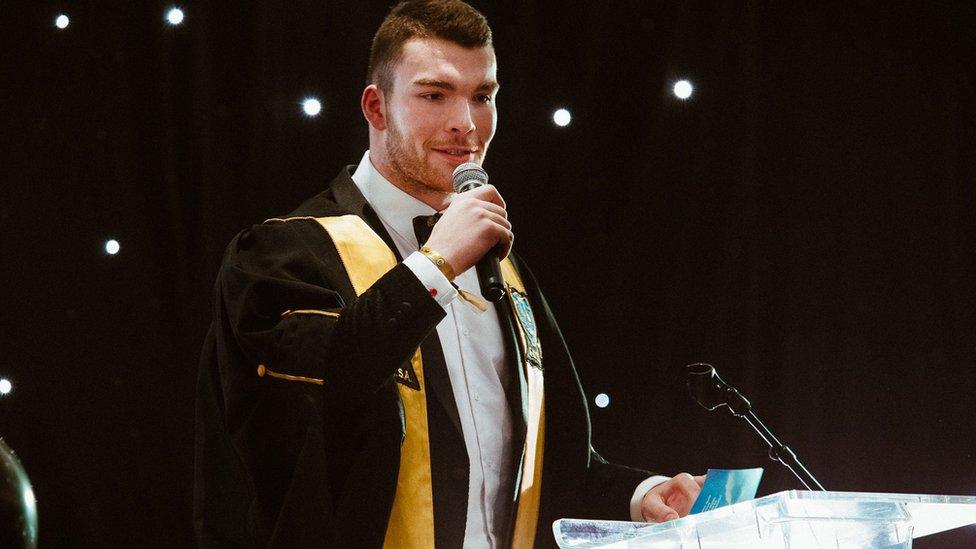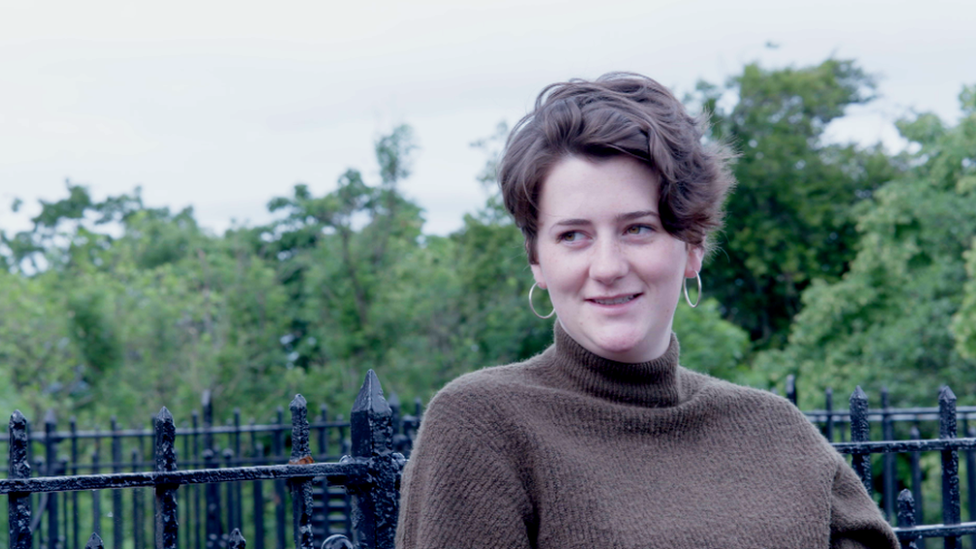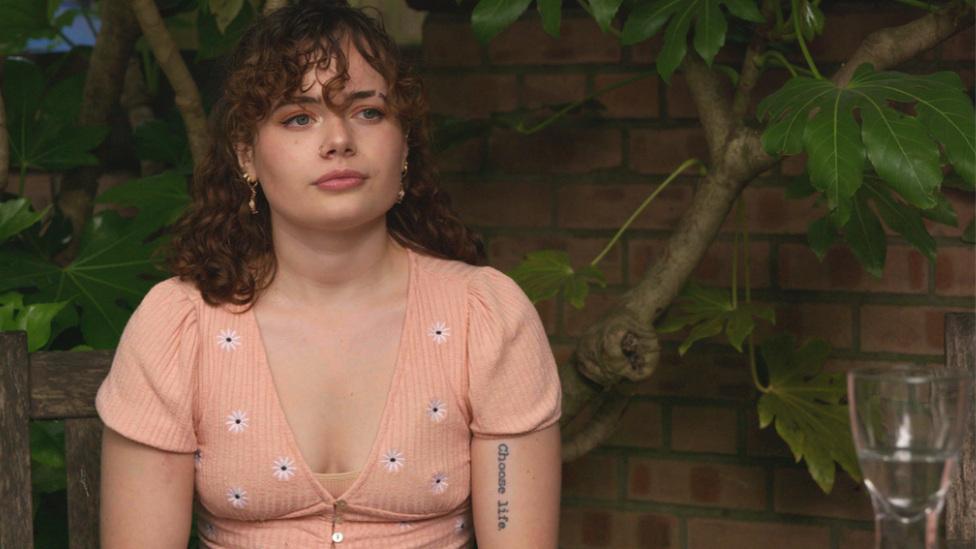Glasgow University students 'let down' over sexual harassment reports
- Published

Paddy Everingham is a former president of Glasgow University Sports Association (GUSA)
Women who allege they were victims of sexual misconduct at the University of Glasgow have said they were let down by the complaints process.
The BBC's Disclosure programme has heard from two women who made sexual harassment claims against Paddy Everingham, a former president of Glasgow University Sports Association (GUSA).
They criticised the university for its handling of their investigations.
One of the women said Mr Everingham was not suspended while he was being investigated and he was alleged to have intimidated her despite being told not to make any contact.
A second student said she made a complaint and was never again contacted by the university.
A Glasgow university spokesperson said they were unable to comment on individual cases but took all allegations of sexual misconduct extremely seriously.
Mr Everingham denies any wrongdoing.
He took the BBC to court last week in a failed bid to stop the programme being broadcast.
The 26-year-old was president of the Glasgow University Sports Association from 2018 to 2020, a sabbatical post for which the holder is either a graduate or takes time out from their studies and is paid by the university.

Phoebe Reilly was the GUSA welfare convener
Phoebe Reilly, who was then the GUSA welfare convener, said four different women came to her with concerns about Mr Everingham.
She said the university left it to students like her to support women and investigate the claims, without offering any formal help.
BBC Disclosure learned that Mr Everingham had been warned informally by university officials about his alleged behaviour, even before two official complaints were made.
One of the complainers, a former student, claimed that Mr Everingham would grope her on nights out and said his behaviour escalated.
One evening in February 2019 she said he followed her into a toilet in a bar before closing the door behind them.
Rachel, not her real name, said: "He started undoing his belt, his button and zip. And at that point I just said like, 'That's enough. I don't want this, could you please get out?'.
"He didn't listen to me. He just continued with what he was doing.
"[He] still wasn't letting me out of the toilet cubicle. [He] started kind of coming towards me and made an advance towards me."
She claims she managed to leave the cubicle but then Mr Everingham exposed himself and began trying to video himself with his mobile phone and attempted to show her the footage.

Holly Kirkpatrick made a formal complaint about Mr Everingham
Another student, Holly Kirkpatrick, also made a formal complaint about Mr Everingham, claiming he had groped her on several occasions.
She said: "He made quite explicit comments about my body and had slapped me across my bum and stuff a few times in different situations."
The BBC understands that on a university sailing club trip to Croatia in 2019, several women including Holly, complained about Mr Everingham's behaviour.
They alleged that he had behaved inappropriately and had made them feel uncomfortable.
As a result the sailing club wrote to him, making him aware of the complaints, and refused him a spot on the following year's trip.
Mr Everingham denies behaving inappropriately in Croatia and says he was not given a reason for being left out the 2020 holiday.
Disclosure understands the result of the university's investigation into Rachel's complaint was "inconclusive", though Mr Everingham was given a formal warning.
Rachel told the BBC: "They've not done what they can to protect women at the university. They've known what's happened and they've not followed through with what they said they would."
Holly said she was still waiting to hear the outcome of her complaint.
Allegations denied
Despite the complaints against him, Mr Everingham remained in post as GUSA president on full pay until the end of his term in June 2020.
The University of Glasgow then extended his contract by a further month.
The BBC asked Mr Everingham for a response to the allegations. Lawyers acting for him then served a writ on the BBC in a bid to stop the programme.
Because of the public interest in publishing these women's stories, the BBC went to court to defend the action.
On Thursday, a sheriff ruled his application for interim interdict had failed on a number of levels and found in the BBC's favour.
In a statement, Mr Everingham told the BBC: "An internal investigation was conducted within the university and I was not found guilty of any wrongdoings. I strongly deny all of these allegations."
A spokesperson for the university said: "While the University of Glasgow is unable to comment on individual cases, we take all allegations of sexual misconduct or harassment extremely seriously."
"We continue to expand our provision of confidential and personal support, including online reporting facilities either in name or anonymously, as well as access to our professional confidential counselling service for anyone who needs it.
"We are also continuously improving our processes to ensure better supports for survivors are providing more training for managers investigating student and staff cases which relate to harassment or misconduct."
Disclosure: Am I Safe on Campus is on BBC One Scotland on Monday 12 July at 22:35. It reveals reports of sexual misconduct at Scotland's universities are up by nearly a fifth. It also investigates claims of poor handling of rape complaints at the University of St Andrews - claims which the university denies.
Additional reporting by Noor Abdel-Razik, Kevin Anderson and Bethany Woodhead.